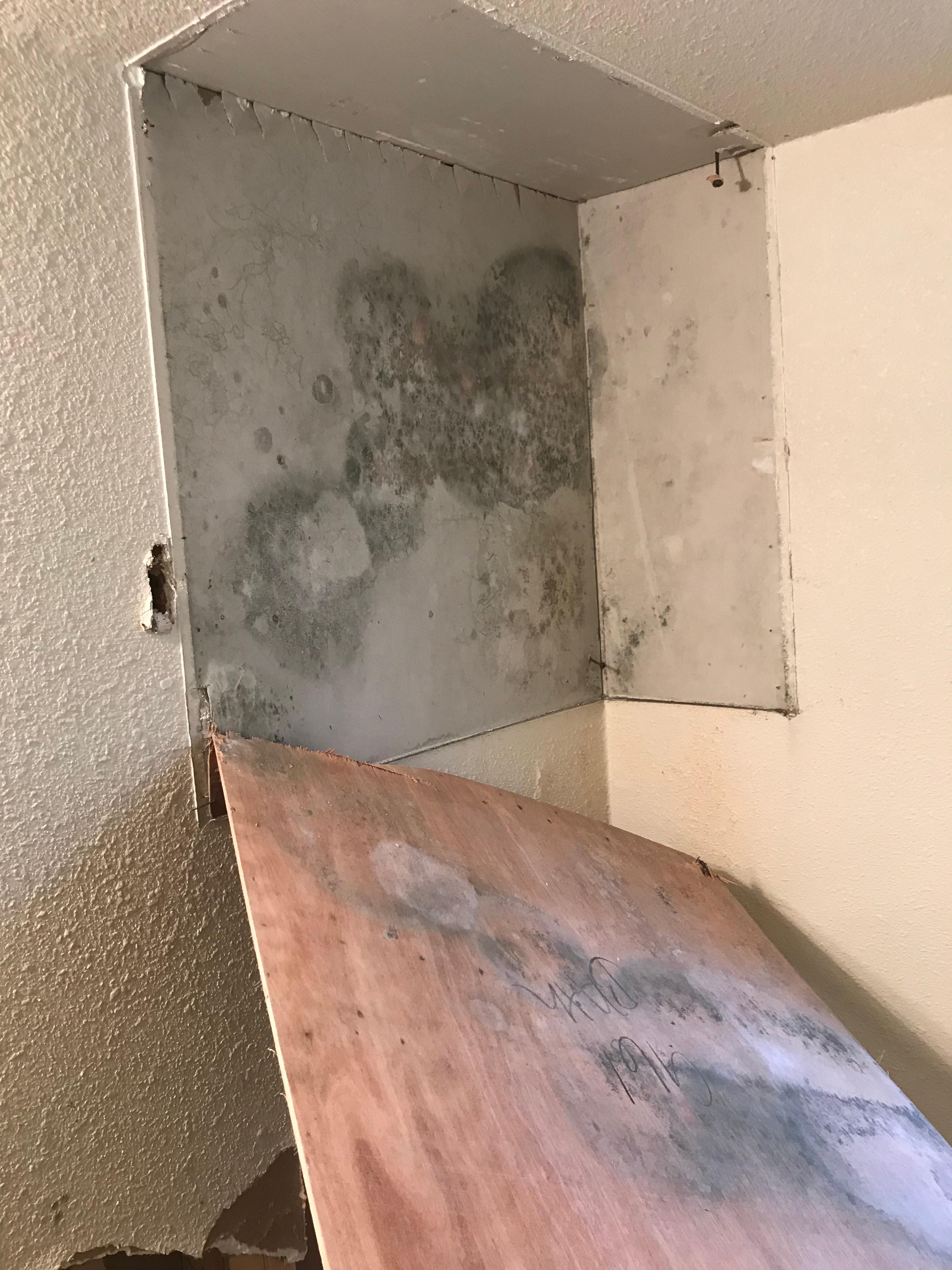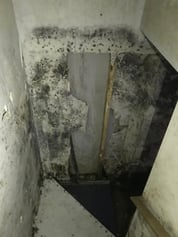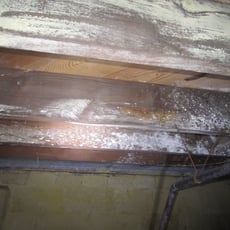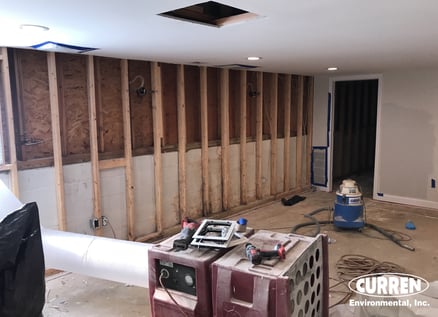What is a mold allergy? Can mold trigger
asthma or other related health issues?
First, let's be clear about mold growing in a built environment, such as your home or place of work, these are built environments. Mold is not a benefit to the home, mold is not a selling feature.

Inhaling mold spores can cause allergic reactions in some people and since mold grows in many places, both indoors and outside, an individual can have allergic reactions year-round.
People who are allergic to mold, can breathe in mold spores which can trigger an asthma flare-up. When mold is inhaled, particularly by persons with allergies or sensitivities to mold, the mold spores can trigger an autoimmune response from the body. Your body sees the mold spores as a danger and your immune system responds and triggers an allergic reaction. How many times has cooking set off a smoke alarm? Same idea with mold spores entering your body, your alarm goes off. Your body as part of the defensive response can cause your airways to constrict, producing more mucus and causing your airways to become red, swollen and irritated. This reaction in the airways can create chest tightness, shortness of breath, wheezing and coughing.


Examples of Mold Growth that can cause allergic reactions.
Aside from inhaling mold spores, when mold is actively growing it will off-gas as part of digestion, this off-gassing can have an adverse health effects in susceptible people.
What are common symptoms of mold exposure?
The human body reaction to mold is very similar to the symptoms of other allergies, and can include sneezing, itching, runny nose, congestion, tightness of chest, and dry, scaling skin to name a few.
When mold spores get into your nasal passage they can trigger hay fever symptoms. They also can reach the lungs and trigger asthma. A chemical released by allergy cells in the nose and or lungs causes the symptoms. Sometimes the reaction happens right away. Sometimes a mold allergy can cause delayed symptoms, leading to nasal congestion or worsening asthma over time.
Understand that mold spores (sometimes called mildew) are fungi. They are different from plants or animals in how they reproduce and grow. Mold grows by spreading spores. Spores are like seeds that can travel through the air, on your person and on possessions. Expect mold spores to be present wherever you are throughout your day, as mold is ubiquitous in our environment. These background levels of mold can be very small and may only grow to become an irritant after the spore has settled on a surface and in an environment where the mod can grow and thrive. You are likely not to encounter large populations of mold dining at your favorite restaurant since the conditions in the room are likely not conducive to mold growth (Think to dry). But have the same meal in a damp basement, well mold is much more likely to be present.

A mold spore can be dead (it is called non-viable and could have become that way from say being treated with bleach) or alive and still affect you when you inhale the mold spores . So, you can have a reaction to active mold growth as well as mold spores from mold that are either actively growing or are dormant or dead.
More questions? Visit our FAQ on mold or call us today.

